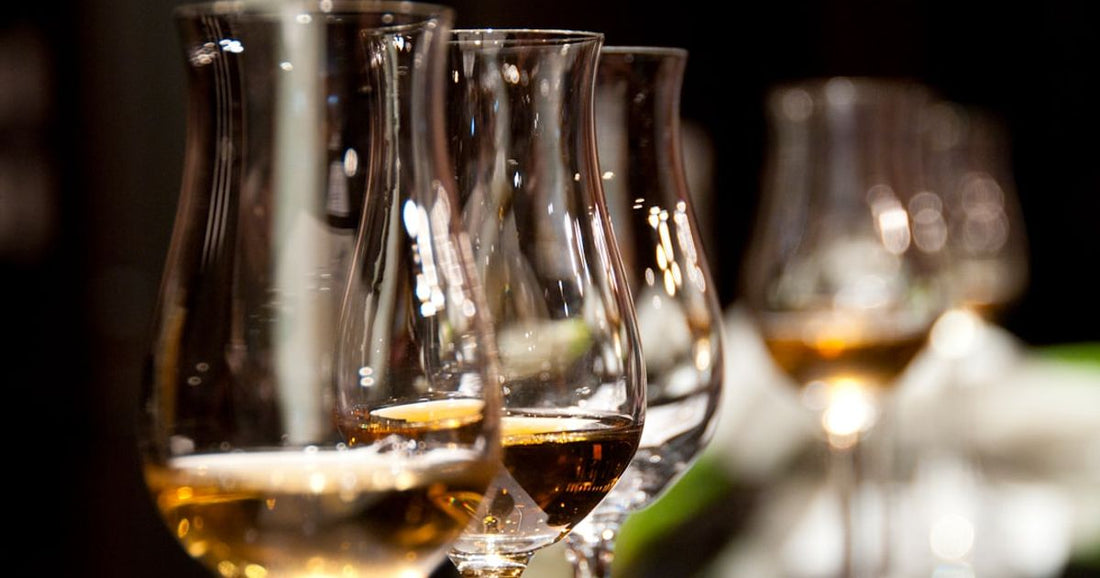
Contemporary Spanish Wine and Climate Change
Share
In the face of a rapidly changing climate, the Spanish wine industry is undergoing a significant transformation. As one of the world's largest wine producers, Spain is uniquely positioned to feel the impacts of climate change acutely. Rising temperatures, unpredictable weather patterns, and the increasing frequency of extreme weather events pose unprecedented challenges to viticulture. However, these challenges also present opportunities for innovation and adaptation. This article delves into how contemporary Spanish wine techniques are evolving in response to climate change, focusing on the shift towards sustainable viticulture practices. We explore the proactive measures Spanish winemakers are taking to ensure the longevity and quality of their wines, from the vineyard to the bottle.
Key Takeaways
- Adaptation to Climate Change: Spanish winemakers are implementing innovative techniques to adapt to the changing climate, including altering grape varieties, adjusting harvesting times, and employing new vineyard management practices.
- Sustainable Viticulture: A move towards more sustainable practices is evident, with an emphasis on organic farming, water conservation, and reducing carbon footprints.
- Technological Advancements: Technology plays a crucial role in adapting to climate change, from precision viticulture tools to advanced winemaking equipment that minimizes environmental impact.
- Investment in Research: There is a significant investment in research to understand the effects of climate change on viticulture and to develop new strategies for resilience.
- Consumer Awareness: The industry is also focusing on educating consumers about the importance of supporting sustainable and climate-resilient wine production.
The Impact of Climate Change on Spanish Viticulture
Climate change is not a distant threat for the Spanish wine industry; it is a current reality. The country's diverse wine regions, from the cool, wet northwest to the hot, dry south, are all experiencing the effects of a warming planet in different ways.
Rising Temperatures and Harvesting Challenges
The increase in average temperatures is leading to earlier bud break and harvest times. While this might seem beneficial, it also increases the risk of spring frosts damaging the young buds. Moreover, the accelerated ripening process can result in grapes with higher sugar levels and lower acidity, which can impact the balance and flavor profile of the wines.
Extreme Weather Events and Vineyard Damage
Extreme weather events, such as hailstorms, heavy rains, and prolonged droughts, are becoming more frequent and intense. These events can cause significant damage to vineyards, affecting both the quantity and quality of the harvest. Drought, in particular, is a critical issue for many Spanish regions, stressing vines and leading to lower yields.
Adapting Viticulture Practices for Climate Resilience
In response to these challenges, Spanish winemakers are exploring a variety of strategies to adapt their viticulture practices to the changing climate.
Exploring Alternative Grape Varieties
One approach is the experimentation with different grape varieties that are better suited to warmer conditions. Some wineries are planting varieties that ripen later, have higher drought tolerance, or are more resistant to diseases and pests exacerbated by climate change. This strategy not only helps in adapting to current conditions but also preserves the diversity of Spanish wines.
Innovative Vineyard Management Techniques
Winemakers are also adopting new vineyard management techniques to protect their vines from extreme weather and to conserve water. Techniques include using cover crops to improve soil moisture retention, employing drip irrigation systems for efficient water use, and redesigning vineyard layouts to maximize shade and airflow, reducing heat stress on the vines.
Sustainable Winemaking: Beyond the Vineyard
Sustainability in response to climate change extends beyond the vineyard to encompass the entire winemaking process. Spanish wineries are leading the way in implementing environmentally friendly practices that reduce their carbon footprint and preserve the ecosystem.
Organic and Biodynamic Farming
An increasing number of Spanish wineries are turning to organic and biodynamic farming methods. These practices eschew synthetic pesticides and fertilizers, focusing instead on natural alternatives that promote biodiversity and soil health. By fostering a more resilient vineyard ecosystem, wineries are better positioned to cope with the stresses of climate change.
Energy Efficiency and Renewable Resources
Wineries are investing in energy-efficient technologies and renewable energy sources, such as solar and wind power, to reduce their environmental impact. From low-energy lighting systems to carbon-neutral winemaking processes, these initiatives not only mitigate the effects of climate change but also lead to cost savings in the long run.
The Future of Spanish Wine in a Warming World
The Spanish wine industry's response to climate change is multifaceted, combining tradition with innovation. By embracing sustainable viticulture and winemaking practices, Spanish wineries are not only adapting to the current challenges but are also paving the way for a more sustainable and resilient future.
Investment in Research and Development
Continuous research and development are critical for understanding the complex relationship between climate change and viticulture. Spanish research institutions and wineries are collaborating on projects to study the effects of different variables on grape growth and wine quality, developing new strategies to mitigate these impacts.
Educating Consumers and Promoting Sustainability
There is a growing effort to educate consumers about the importance of supporting sustainable wine production. By choosing wines from wineries that prioritize environmental stewardship, consumers can play a role in promoting a more sustainable wine industry. This consumer awareness is crucial for driving further change and ensuring the long-term viability of the Spanish wine sector.
In conclusion, the Spanish wine industry is at the forefront of addressing the challenges posed by climate change. Through innovative viticulture practices, sustainable winemaking, and a commitment to research and education, Spanish wineries are demonstrating resilience and adaptability. As the climate continues to change, these efforts will be vital in preserving the rich heritage and future of Spanish wine.
For more insights into the Spanish wine industry and its response to climate change, explore our related articles on The Impact of Climate Change on Wine Investment, Different Aging Techniques in Spanish Wineries, and Professional Tips for Aging Spanish Wine.


